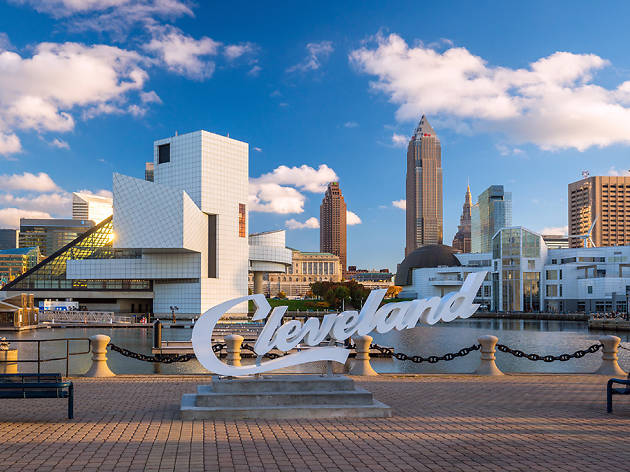Article below via Apple News+
It's not just Elon Musk who is moving to Texas, according to the media. Stories abound of techies, newly liberated from tiny, overpriced coastal apartments by remote work, fleeing to warmer, cheaper cities. If you believe the tech press and your social media feeds, about half of San Francisco is joining Musk in Texas.
But as lovely as Austin may be, is this story that hip, low-tax, high-temperature cities are going to be the big beneficiaries of a post-pandemic migration away from traditional tech hubs actually true?
Not according to the Big Technology newsletter from tech reporter Alex Kantrowitz. A few weeks back Kantrowitz announced he had gotten his hands on some exclusive LinkedIn data that shows the standard media narrative about where techies are heading just isn't correct.
Sorry, Austin.
The numbers in question are what LinkedIn calls "inflow/outflow" data, which take account not just of how many techies are moving into a city, but also how many are moving out. Is a particular area experiencing a net gain or loss of talent? This number will tell you. And Kantrowitz claims that if you compare this stat in 2020 to past years, the big winners in the usual media narratives actually aren't.
"Austin, for its part, is not experiencing a pandemic-induced tech worker surge. Last year, Austin was gaining 2.06 tech workers for every one that left; now it's down to 1.84, a drop of 10.78 percent. Though Austin is still gaining tech workers this year, the notion that 2020 was a watershed year for tech workers moving there is a myth," he writes.
Miami, another much buzzed about destination, is only gaining three percent more tech workers this year compared to last.
So who is actually winning the war to attract those fleeing the big cities because of the pandemic? Kantrowitz's newsletter offers all the details, but the short answer is a bunch of cities you probably haven't heard much about, including:
Madison, Wisconsin (which saw a whopping 74 percent increase in the inflow of tech workers)
- Cleveland, Ohio
- Sacramento, California
- Minneapolis-St.Paul, Minnesota
- Hartford, Connecticut
The larger lesson
Kantrowitz's newsletter is worth a read if you're looking for a deep dive into the data and its implications, but the biggest takeaway is probably also the simplest: take media trend stories with a grain of salt. Predictions made in the midst of crises are notoriously unreliable, and as Kantrowitz and other data-focused commentators have pointed out, when it comes to real estate trends reality is usually more complex than popular narratives.
Will the pandemic end up changing how we work and therefore the calculus of where we live? Almost certainly. But that doesn't mean the results will be as simple as an instant mass migration from San Francisco to Austin (or any other particular city). It will be awhile yet before we see how this all shakes out, but wherever people land it's likely to be more surprising than the headlines you're currently reading.
It's not just Elon Musk who is moving to Texas, according to the media. Stories abound of techies, newly liberated from tiny, overpriced coastal apartments by remote work, fleeing to warmer, cheaper cities. If you believe the tech press and your social media feeds, about half of San Francisco is joining Musk in Texas.
B ut as lovely as Austin may be, is this story that hip, low-tax, high-temperature cities are going to be the big beneficiaries of a post-pandemic migration away from traditional tech hubs actually true?
Not according to the Big Technology newsletter from tech reporter Alex Kantrowitz. A few weeks back Kantrowitz announced he had gotten his hands on some exclusive LinkedIn data that shows the standard media narrative about where techies are heading just isn't correct.
Kantrowitz's newsletter is worth a read if you're looking for a deep dive into the data and its implications, but the biggest takeaway is probably also the simplest: take media trend stories with a grain of salt. Predictions made in the midst of crises are notoriously unreliable, and as Kantrowitz and other data-focused commentators have pointed out, when it comes to real estate trends reality is usually more complex than popular narratives.
W ill the pandemic end up changing how we work and therefore the calculus of where we live? Almost certainly. But that doesn't mean the results will be as simple as an instant mass migration from San Francisco to Austin (or any other particular city). It will be awhile yet before we see how this all shakes out, but wherever people land it's likely to be more surprising than the headlines you're currently reading.
It's not just Elon Musk who is moving to Texas, according to the media. Stories abound of techies, newly liberated from tiny, overpriced coastal apartments by remote work, fleeing to warmer, cheaper cities. If you believe the tech press and your social media feeds, about half of San Francisco is joining Musk in Texas.
But as lovely as Austin may be, is this story that hip, low-tax, high-temperature cities are going to be the big beneficiaries of a post-pandemic migration away from traditional tech hubs actually true?
Not according to the Big Technology newsletter from tech reporter Alex Kantrowitz. A few weeks back Kantrowitz announced he had gotten his hands on some exclusive LinkedIn data that shows the standard media narrative about where techies are heading just isn't correct.
Kantrowitz's newsletter is worth a read if you're looking for a deep dive into the data and its implications, but the biggest takeaway is probably also the simplest: take media trend stories with a grain of salt. Predictions made in the midst of crises are notoriously unreliable, and as Kantrowitz and other data-focused commentators have pointed out, when it comes to real estate trends reality is usually more complex than popular narratives.
Will the pandemic end up changing how we work and therefore the calculus of where we live? Almost certainly. But that doesn't mean the results will be as simple as an instant mass migration from San Francisco to Austin (or any other particular city). It will be awhile yet before we see how this all shakes out, but wherever people land it's likely to be more surprising than the headlines you're currently reading.

